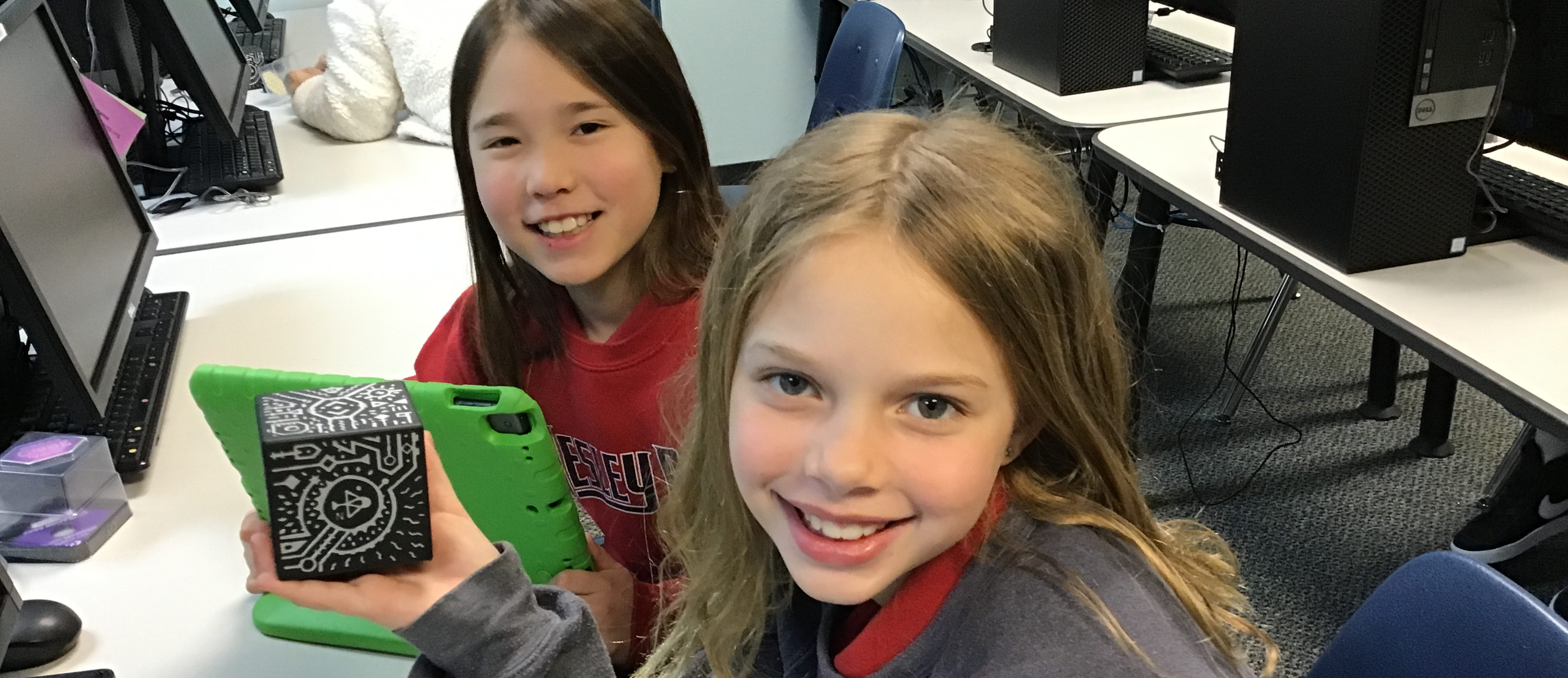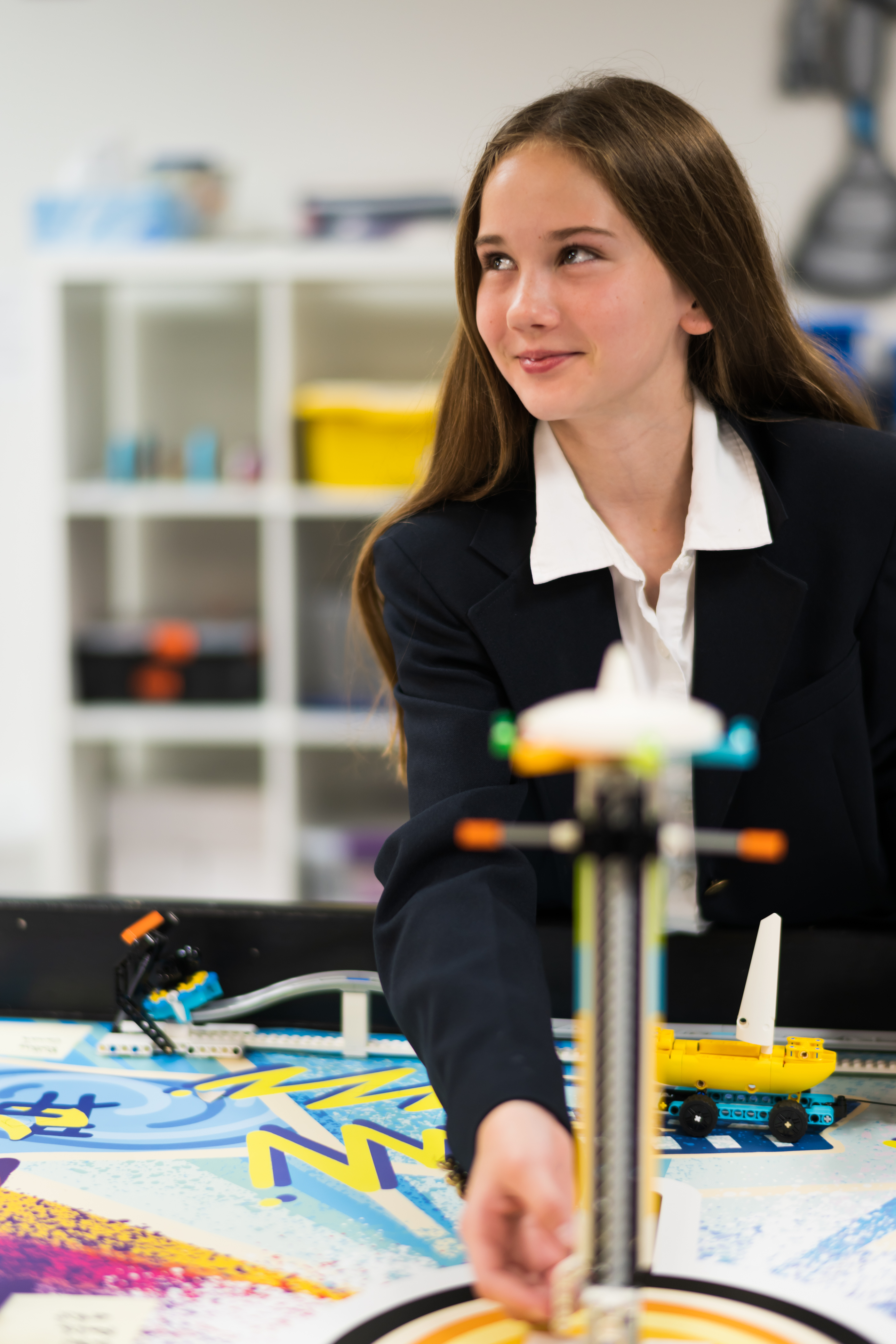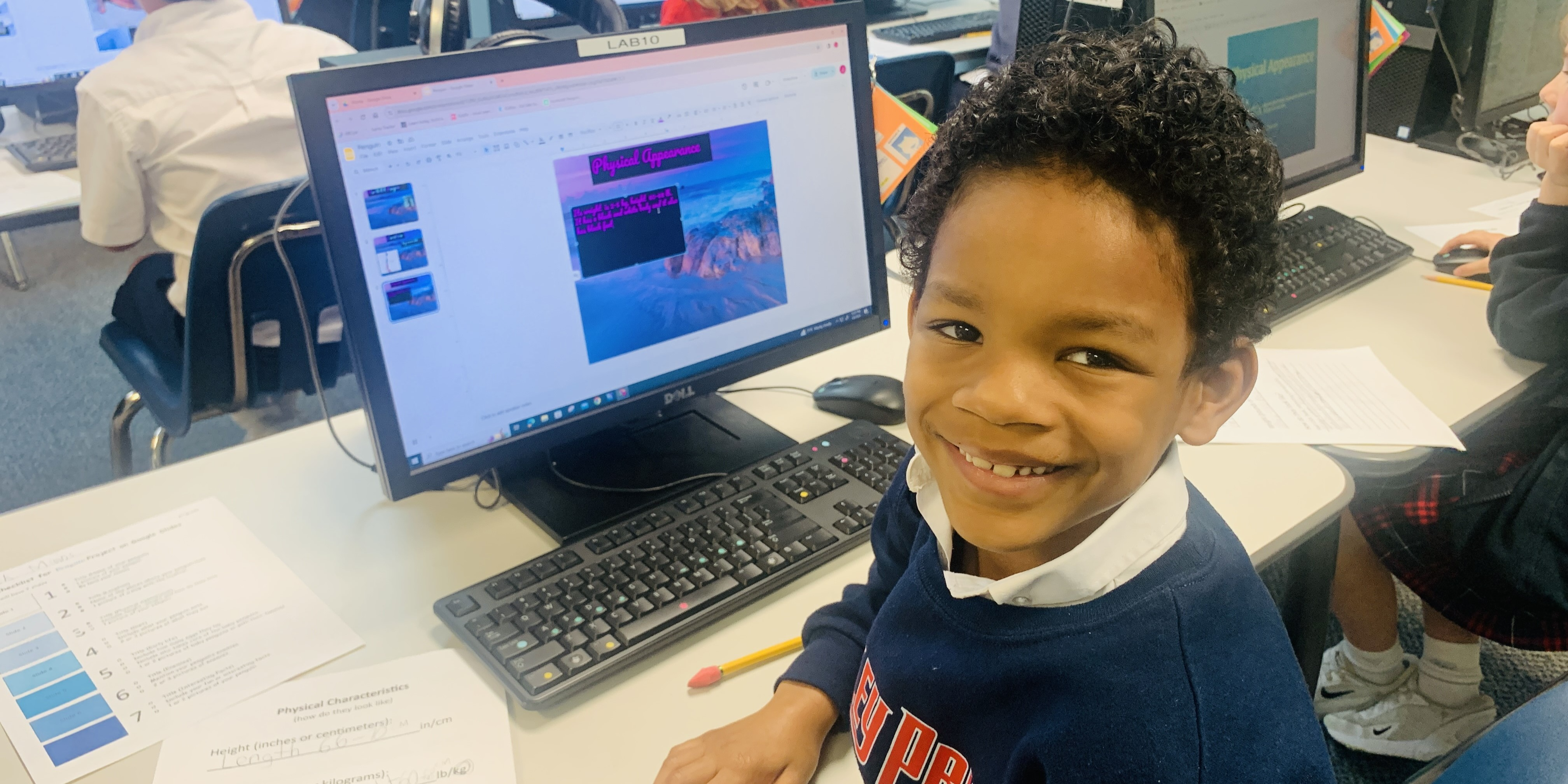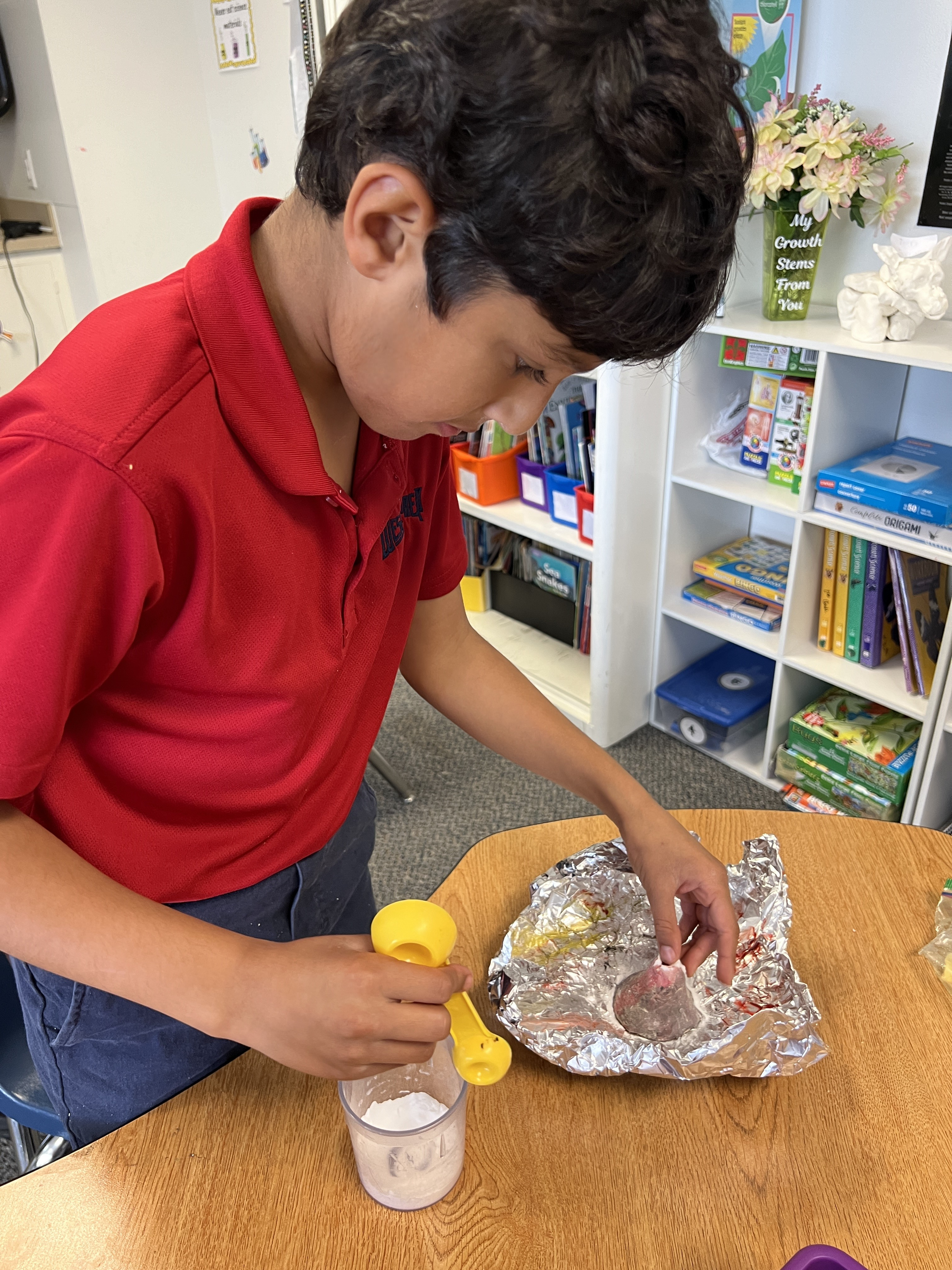Skip to content




Extracurriculars
Show submenu for
INNOVATION LAB | ROBOTICS | TECHNOLOGY | SCIENCE LAB
Innovation Lab
Coding is part of the curriculum at Wesley Prep. Lower grades are introduced to it with a friendly coding language using plugged and unplugged activities. As they move on, students use various block-based coding programs to build algorithms. Some of the robots we use for Technology classes are the Code-a-Pillar, Botley, Sphero, and the interactive robot Jett from Robokind.

Robotics
Our sixth graders become knowledgeable in engineering and confident in their abilities to work as a team, as together they realize success.
Sixth grade embarks on a journey of discovery…bringing all that they have learned thus far together in meaningful ways. Robotics allows our students to refine their teamwork and problem-solving skills. It gives the students the opportunity to create, collaborate, communicate and apply critical thinking. They can showcase their investigations and discoveries through an interactive competition called First Lego League Robotics Challenge. This nationally-recognized robotics competition includes project, presentation and robotics table tasks challenges. Students use the scientific method to hypothesize, test and retest how things work and interact. Their problem-solving skills are put to the test and prove to teach how math, science and engineering actually work.
Students begin their robotics adventure with a task to build the fastest robot they can build. Students consider all aspects of increasing the speed of a robot including gear ratios, friction, force, and design. After, they incorporate sensors, programming and attachments to complete further challenges. Students become quite skilled in robotics engineering. Once they have been introduced to each of these aspects of robotics, they are ready to start their robotics team table competition, which requires designing, engineering, programming and building a robot to complete multiple obstacles and tasks on our official competition table.
Our student learning is enriched through the robotics classroom as well as the competition. Our sixth graders become knowledgeable in engineering and confident in their abilities to work as a team, as together they realize success.

Technology
The curriculum for our Technology classes is based on the skills the students need to acquire by the end of each grade to be successful and competitive.
Grades Kindergarten through Fifth Grade use the software “Keyboarding Without Tears” which focuses on typing skills, using the right finger position based on home row. Accuracy and speed are the goal, along with good posture. Students interact with the word processing program Microsoft Word creating informational pages, book and research reports, including images and hyperlinks. Also, students use the spreadsheet program Microsoft Excel to manipulate basic and complex data, arithmetic operations and functions. With Microsoft PowerPoint, students create presentations and posters using slides to convey information rich in multimedia.
Age-appropriate web research practices are taught and reinforced, along with digital citizenship principles.

Science Lab

Science Lab consists of hands-on science demonstrations and experiments to solidify the science content students are learning in the classroom. Curiosity is piqued as students make predictions and become more familiar with the steps in the scientific method. In addition, students use the engineering design process to design, build, troubleshoot, and revise prototypes for inventions they design to solve a specific problem.
All Elementary students and PreK classes participate in laboratory experiments, either within their homeroom classrooms, with a visiting scientist (i.e., the High Touch, High Tech Hands-on Science Program), or by attending class in the Science Lab. Our Nursery & Toddler classes are introduced to science through sensory play by participating in lessons that involve the five senses (sight, smell, hearing, touch, and taste) - this helps children develop their observation skills, language skills, curiosity, exploration, problem-solving, and creativity.
Science Lab is the perfect way to learn about the experimental design process (a set of procedures that are designed to test a hypothesis).
observation
question
form a hypothesis
design an experiment
make predictions
test the hypothesis
form a conclusion
